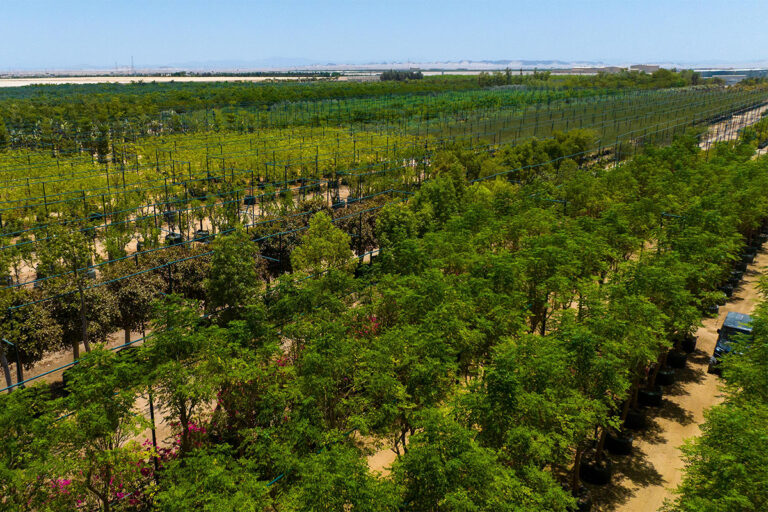Two shining examples of the new breed of young Saudi entrepreneurs, Khaled Almadi and Ahmed Alkharji turned their backs on office life and the corporate world to launch one of the most successful coffee brands in the country: Elixir Bunn Coffee Roasters.
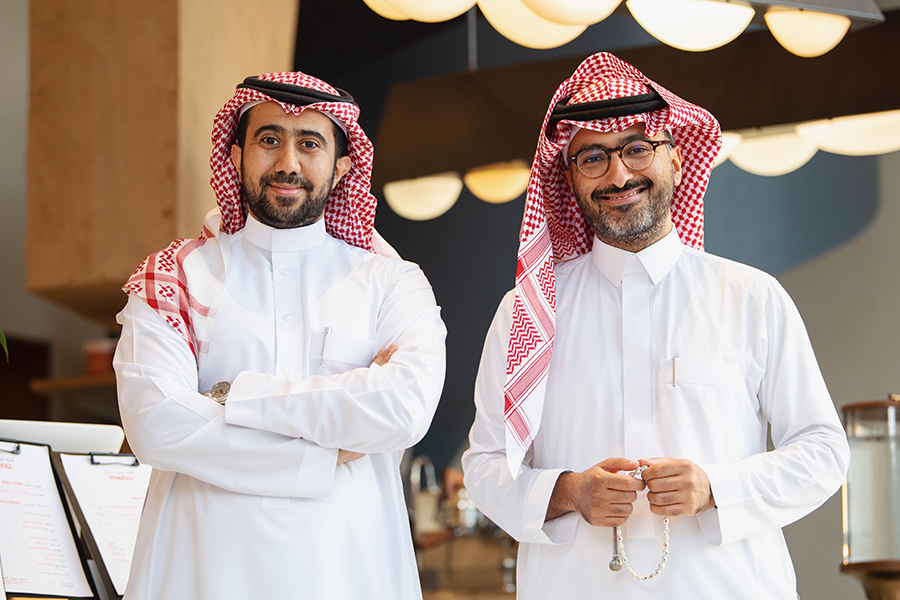
Dissatisfied with the corporate world soon after leaving college, Khaled Almadi and Ahmed Alkharji took a step that would have been unthinkable in Saudi Arabia just a generation ago: They left their jobs and started an independent specialty coffee chain, which is transforming Saudi café culture.
For hundreds of years, coffee has played an important part in Saudi life, and it is often mixed with spices such as cardamom as part of an elaborate ritual in homes, at events, and even in Bedouin tents. However, the contemporary third-wave coffee movement had largely passed the Kingdom by—until Khaled and Ahmed began experiencing the coffee revolution for themselves.
On a trip to Japan with Khaled in 2013, “I drank an espresso in Tokyo that was a real game changer,” Ahmed recalls. “I could not understand how such a place could produce such a fantastic and memorable cup of coffee. From that moment on, we resolved to introduce the extraordinary tastes and flavors of specialty coffee into Saudi Arabia.”
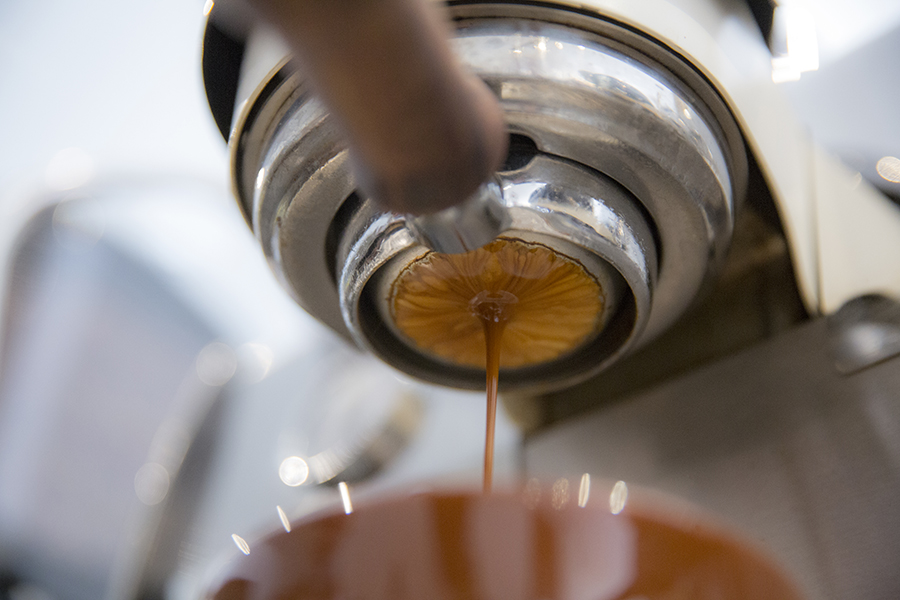
Inspired by their experiences overseas, the business partners launched Elixir Bunn, a chain of cafés that is now transforming coffee culture in Saudi Arabia.
The company’s first store, in Riyadh, opened the doors its early 2015, before expanding into two more locations in 2019. Elixir Bunn now employs nearly 50 people and has ambitious plans for nationwide expansion.
To win over a market that had no experience of high-end coffee, Elixir Bunn made savvy investments in social media and in creating a memorable customer experience. Attention-grabbing campaigns with Instagram influencers helped raise the interest of the Saudi public, and the company’s friendly customer service and competitive prices were soon winning new converts to its specialty coffees.
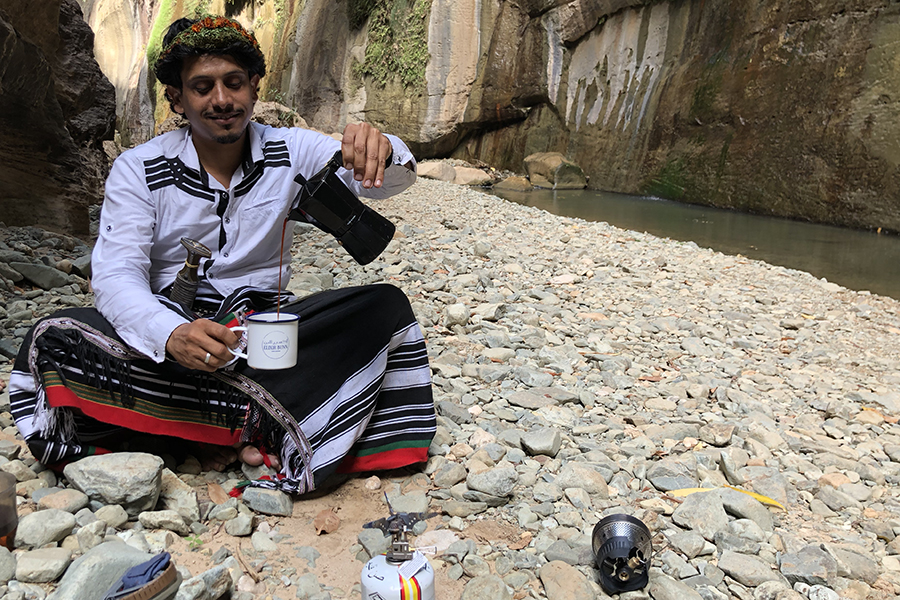
With the Saudi government slashing red tape and making it easier for private businesses such as Elixir Bunn to flourish, the country’s coffee scene and café culture are now expanding at a rapid rate. From 180 cafés per million people in 2018, by 2022 there are expected to be 260 per million and by 2030 no fewer than 1,000 cafés per million citizens.
Khaled and Ahmed are now extending this boom to Saudi Arabia’s growing number of coffee producers by actively supporting coffee cultivation in the Kingdom.
We have already sourced some extraordinary coffees from Jazan, in the south of the country,” Khaled says. “We want all parts of the value chain to benefit from the coffee revolution.”
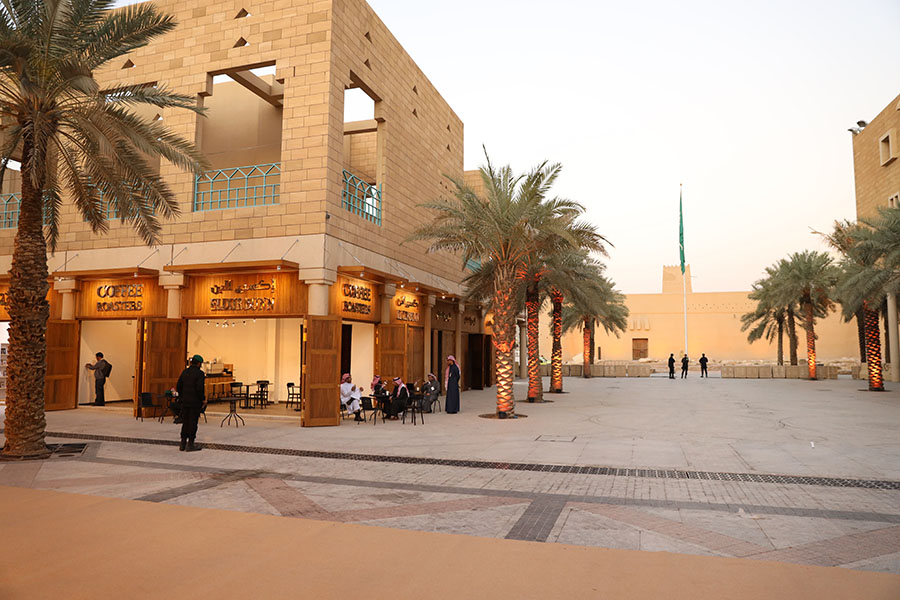
Q&A with Khaled Almadi and Ahmed Alkharji, co-founders, Elixir Bunn
How is the role of coffee changing in Saudi Arabia in the 21st century?
Khaled: Coffee is an essential element in our heritage. It is a symbol of the hospitality and generosity of the Arabian Peninsula. When Saudis began traveling overseas, they brought the taste for specialty coffee home and incorporated it into their daily life and rituals.
“We work hard to develop local craftsmanship to ensure that all parts of the value chain benefit from the coffee revolution.”
Khaled Almadi and Ahmed Alkharji, co-founders, Elixir Bunn
Why is the Saudi café market growing so rapidly?
Ahmed: There are three things that you will not find in any other country at the moment: Firstly, we are a coffee nation; secondly, young people have high purchasing power; and thirdly, there is no other business that competes with cafés and coffee drinks in the market.
What can customers find in Elixir Bunn that they cannot find in Starbucks?
Khaled: We do not just sell a customer a cup of coffee; we sell an enjoyable and rich experience from the moment a customer walks in, up until the time they finish their cup and leave the café. We serve specialty-grade coffees and we focus heavily on customer service. We train our baristas carefully about how they should serve coffee to customers. We want to make third-wave coffees approachable and enjoyable for our customers.
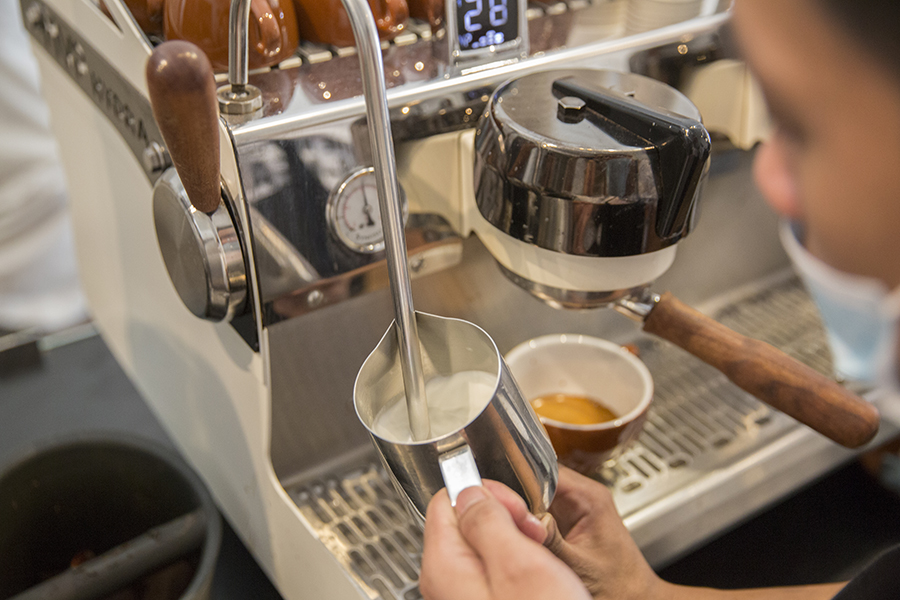
What are your plans for working with coffee producers in Saudi Arabia?
Khaled: The quality of the coffee produced in the Jazan region is spectacular. We have been making social investments there since early 2017 and will be bringing new coffees from Al Dayer and the Al-Raith Mountains to our stores next year. We are also planning to organize more trips for our customers to the coffee plantations of this incredible region.
How easy is it to be a young entrepreneur in contemporary Saudi Arabia?
Ahmed: The new generation is embracing entrepreneurship. Young people are more interested than ever in setting up their own businesses. There is also a great deal of financial support from venture capitalists and private equity firms. We have the most important VCs in the Middle East. If an entrepreneur has a good idea that adds value locally or globally, then the finance will come![]()
As published in Fortune magazine






